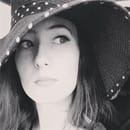When I tell people I’m studying journalism, I am inevitably met with one of three responses:
- What is that?
- Isn’t that dying?
- Or, and this is the least likely, that’s cool, why do you do that?
The last one is a fair response, I would say, especially given the current climate around journalism. News is becoming more and more fake. A good chunk of information is touted as false when it is really truth, which is in and of itself fake news. It’s a spiral. We don’t trust our media; and in that, we lose a fundamental trust of society as a whole.
“What is that?”
The simplest way I can describe it is that journalism is storytelling. It is a man sitting before a typewriter saying, “this is an event that people deserve to experience, that I had the privilege to experience, so I am going to key them into it as best I can.” The effort is to be open, honest, and unbiased, to tell the whole truth and nothing but the truth in a way that enriches the public knowledge of events.
Truth telling, storytelling, the human experience does us good, and we as journalists embrace and explore that.
“Isn’t that dying?”
No. But, it’s definitely got a little bit of a limp.
This is to compare news-writing to its heyday, to the era of Pulitzer and his newsies, and Ben Franklin, to a public that thought it their civic duty to pick up a paper and figure out what was happening in their world, then to wrap a fish or paper a wall in it. They were resourceful like that.
This is also to compare news-writing to its second wind, to the era of the Pentagon Papers, and Deepthroat, and Walter Cronkite, to a news force that was so dedicated to finding and revealing the truth that the public looked on them as instrumental because they made themselves so. Governments, wars, society, and law, all were decided in one way or another by the ink flowing through the local Times.
This is to compare these to today, to the era of fake news and the blogosphere (which is not all bad, hence my presence on two), to Alden Capital and the pursuit of capitalistic news-writing, to shutdowns and cultural loss because of them. To a public that finds it easier to skim through their feeds to find the news of the day, and doesn’t question what they find there, doesn’t venture outside their bubble of like mindedness. To a media that panders to their audience, serving cheap banter and quick synopses rather than detailed investigation and imagery.
To our limping.
To put it simply news is not dying, its evolving to a changing media and profit mandate, in which subscriptions are now necessary for survival of an establishment but not for consumption of the product. In which newspapers aren’t even used to wrap fish anymore, we have cellophane for that, but the click of a keyboard is the heralding news of today (think little boy screaming “extra extra!”) It’s evolving, and it’s struggling, but it’s fighting.
“Why do you do it?”
Why did I sign up to attend a $65,000 institution to learn a craft that will earn me $30,000 a year? Why do I decide to write knowing that no one may be listening, that my field is limping at best? Why do I tell stories?
Because I have one, and you do to. Because our lives do not diminish in depth just because those willing to dive deep and uncover them are fewer, farther between. Because there is still great work being done in my field, and in the field of all writers. Of readers. (Because reading is a job too. Storytelling is two-fold, and he who interprets the piece carries as much value as she who writes it [or vice versa, don’t you just love the pronoun game?])
Why do I write now?
This leads me to my concluding sentiment, why do I write now? Sitting in front of my computer for a blog that is not the ideal audience for my musings, why am I still writing?
Because there is value in the story I tell here, I hope to reinspire, perhaps, the value of a storyteller. To encourage my audience be it 6 or 60 to consume the stories around them. To counter, with a small voice, the cries of fake news and distrust in our storytellers.

